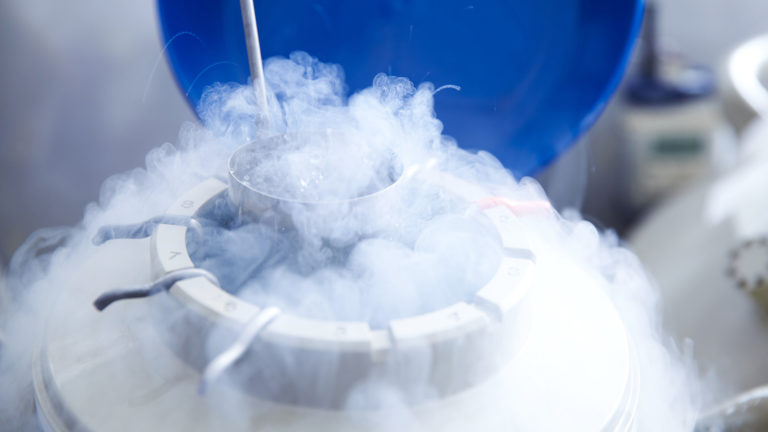
By freezing eggs before starting cancer treatment, women can retain the hope of having a natural child.
Researchers turned their attention from traditional technology to a cell freezing method called vitrification. This cryopreservation technique allows oocytes to cool fast enough to immediately change from liquid to solid. There is no ice crystal formation, and the consistency is similar to viscous glassy state.
"Using the traditional slow freezing technology, only more than half of the eggs survived the thawing process. Using the vitrification technology, our survival rate was 98%. For a woman with cancer, these eggs are the only eggs she has. Therefore, it is important to be an associate professor of Obstetrics and Gynecology, Urology, molecular and comprehensive physiology, fertility counseling and nursing at um medical school Dr. Gary D. Smith, director of the gamete cryopreservation program, said.
Cancer treatments such as chemotherapy and radiotherapy may damage a woman's reproductive system and make her infertile. Some women may recover their reproductive function after treatment and may be able to conceive on their own, while others may become infertile. Egg cryopreservation may be an insurance for women at the highest risk of fertility after cancer treatment.
When a woman wants to get pregnant, the vitrified egg is heated and fertilized with the male sperm. The fertilized egg is then transferred to the uterus in the same procedure successfully used by the husband and wife to freeze the embryo.
When eggs are heated after vitrification, the fertilization rate of traditional IVF is very low. On the contrary, researchers have found that a single sperm cell must be injected into a single oocyte. This technology is called intracytoplasmic sperm injection or ICSI. Although ICSI is a mature technology for assisted reproduction, it is more complex and costly than traditional methods.
80% of vitrified eggs are fertilized by ICSI, and the live yield is about 30%, which is equivalent to the traditional IVF of unfrozen eggs. The fertilization rate and birth rate of vitrified eggs are similar to those of non vitrified control eggs.
To make the egg freeze, it must be a mature oocyte, which means that women must receive 14 days of hormone therapy to stimulate the production of mature eggs. This may limit their application to some women. Researchers question whether it is suitable for women with estrogen induced cancer (such as breast cancer)

